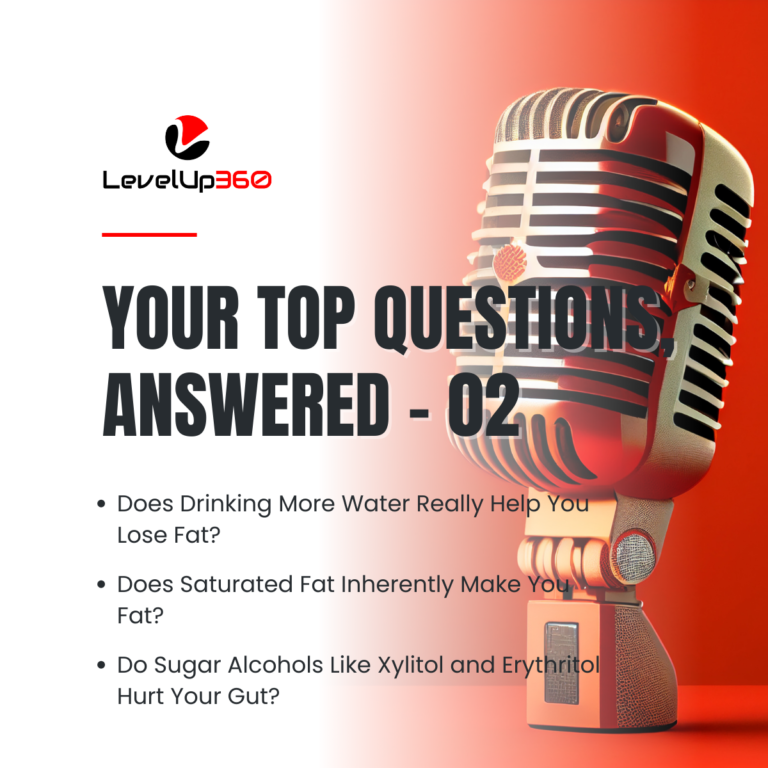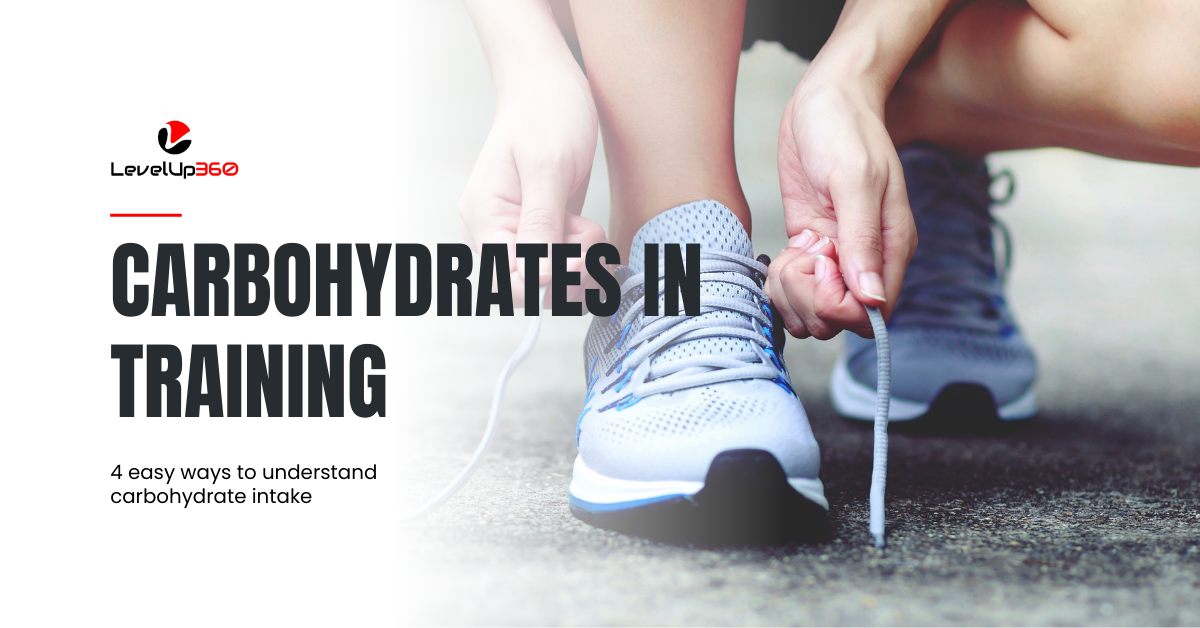
Carbohydrates In Training
It is important to remember that while carbohydrates, at 4kcal/g, are a significant source of energy in most diets, they are NOT an essential nutrient. This is to say that we do not need them to survive. However, the ability for individuals/athletes to have the sustainable energy to train day after day can be largely dependent on the adequate restoration of muscle glycogen.
Despite what the media has said, carbs are neither “good” nor “bad” and, as always in nutrition, the truth is that there is no “optimal range”.
Over the years, carbohydrates have been classified as “simple” or “complex.” While this is meant to distinguish sugars (monosaccharides) from polysaccharides, it has only created even more confusion in the nutrition space. The truth is that neither term serves justice to the nutritional quality of any food. These terms do not address the micronutrient content or even the blood sugar effect of the given food.
The glycemic index was also developed to help classify carbohydrates. This is a measure of how quickly food can raise our blood sugar. The higher the glycemic index of a food, the faster the increase we see in blood sugar. Obviously, foods like sugar, candy, and cereals will have a higher glycemic index whereas higher-fiber foods like vegetables and whole grains will have a lower glycemic index.
The reason this matter is in relation to insulin – our storage hormone. When blood glucose quickly shoots up, it usually triggers a release of insulin (usually equal to the amount of glucose present.) High levels of insulin can lead to high levels of fat storage.
The glycemic index

Unfortunately, the glycemic index is flawed (to put it mildly.) First, it does not take into account food pairing. While you may eat a chocolate bar as a dessert by itself, chances are that you won’t sit down to a bowl of rice or a piece of bread by itself. Food pairings will change the blood glucose response, hence defeating the “glycemic index.”
Other factors such as type of sugar and time of day of consumption (pre/post workout) leave the use of the glycemic index with a lot to be desired. The glycemic load was created as a response to the issues with the glycemic index but is still a flawed methodology as it does not take into account the constituents of the carbohydrates (fiber, micros, etc..)
Most recently, the insulin index has been used, which represents the amount of insulin the body produces in response to a particular food.
What do we know about carbohydrate intake:
- Carbs are the body’s main source of energy and ensure adequate energy to perform at your best.
- Carbs help maintain lean muscle and weight.
- Carbs help fuel your brain, kidneys, heart muscle, and central nervous system.
- Carbs help keep blood cholesterol levels in check.
- Carbs help you consume proper fiber for digestion.
Here are some facts on what research says about the importance of consuming carbs for training purposes.
*In other words the more carbs the more energy across your training days.
How many carbs should I eat based on my training?
To help you maintain proper amounts of energy and perform at your best while preserving muscle, you might want to consider the following:
Low Exercise Intensity (Can easily talk or sing during activity)
3-5 g/kg of bodyweight/day
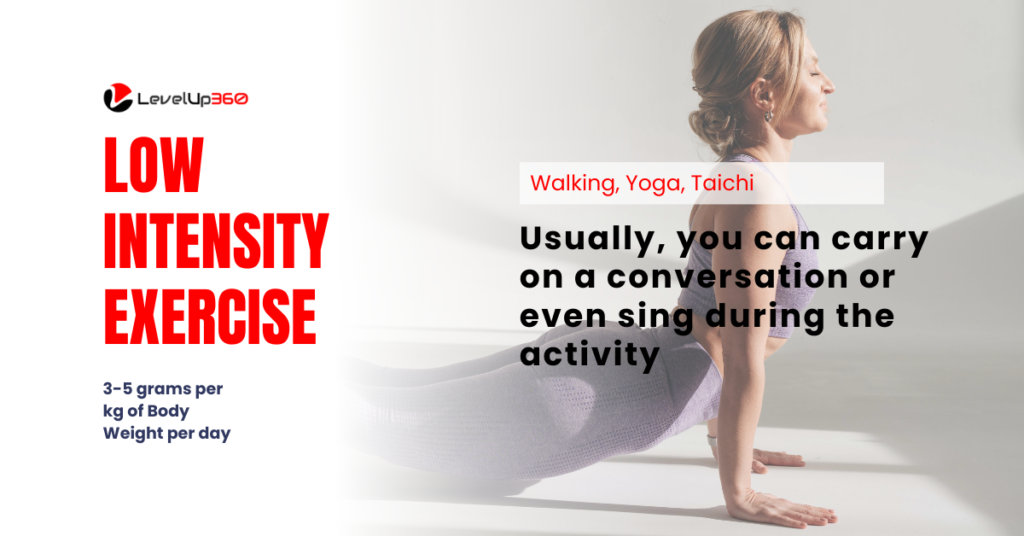
Moderate Intensity 1 hour+ (Can carry a conversation without a problem but canmot sing)
5-7g/kg Body Weigh/day – 50% of energy calories come from carbs.
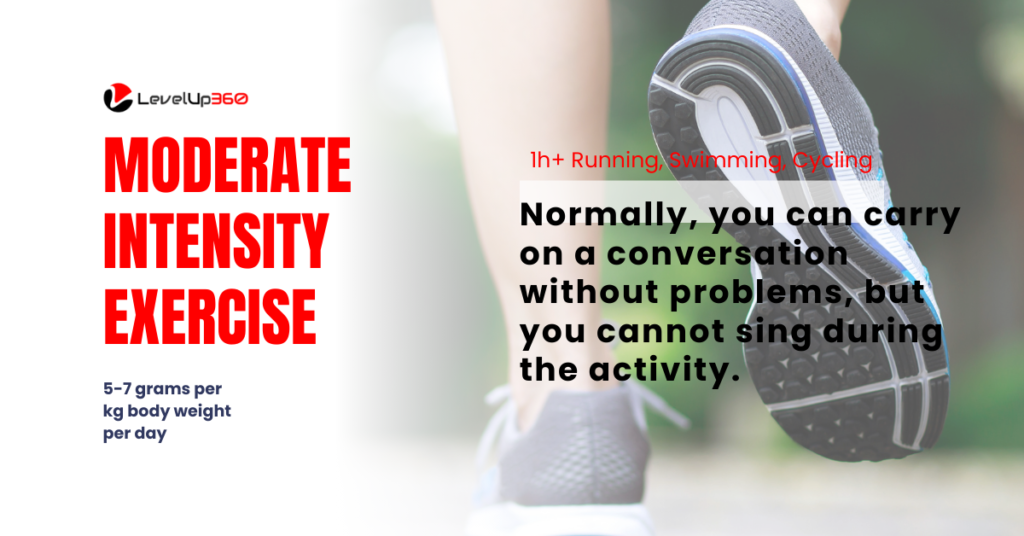
High Intensity of 1 hour + (Only brief conversations)
6-10g/kg Body Weight/day – Post-workout carb/protein intake with high-carb meals is needed to fully restore muscle glycogen.
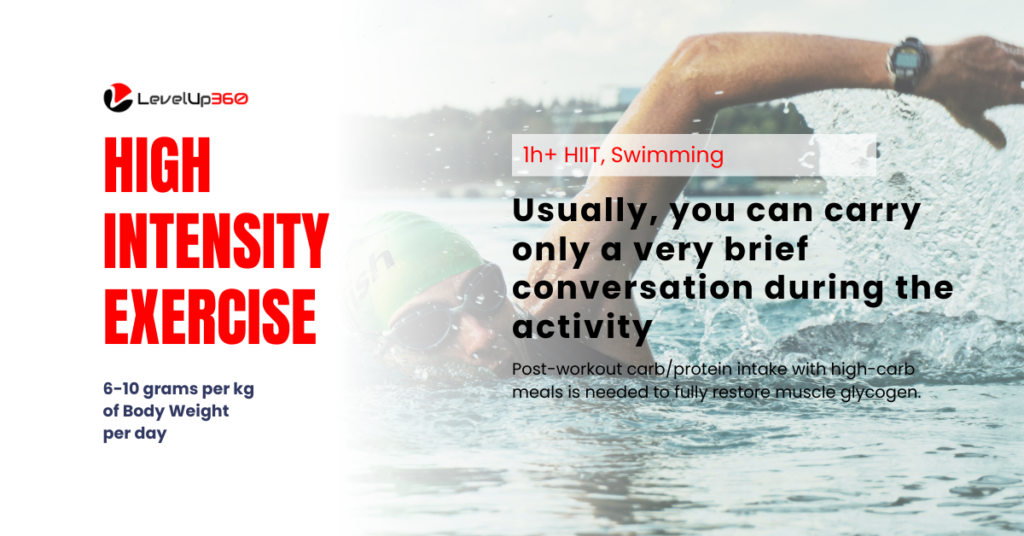
Very-High Intensity of 1 hour + (Cannot speak during effort)
8-12g/kg Body Weight/day – Post-workout carb/protein intake with a high-carb meal is needed to fully restore muscle glycogen.
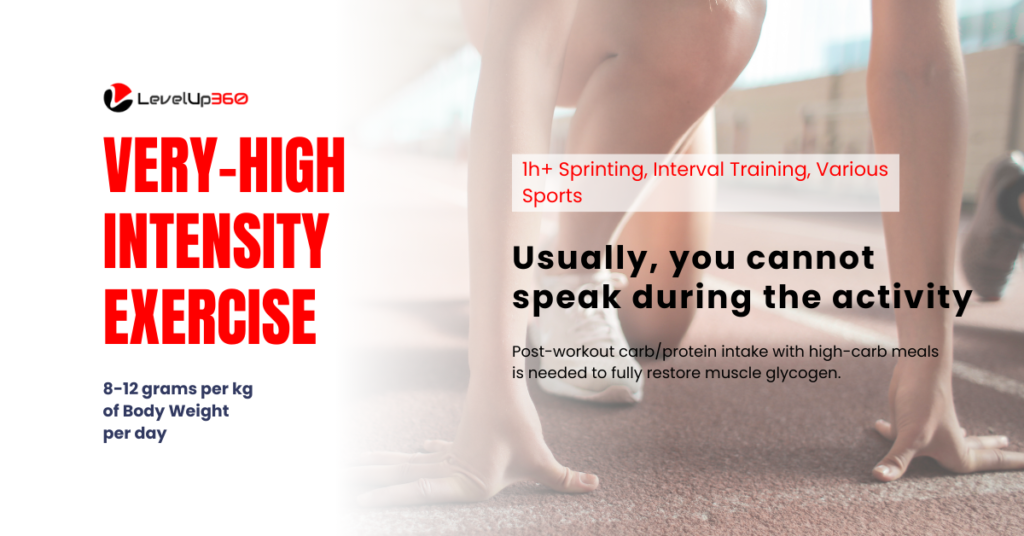
Recommended reading
Recommended reading
More about "Resistance Training"
We will be delving into ways to promote muscle health and the benefits of resistance training for overall health and longevity. We will also look at general health guidelines and more.
You may want to check out related articles about Muscle and Resistance Training:
More about "Resistance Training"
We will be delving into ways to promote muscle health and the benefits of resistance training for overall health and longevity. We will also look at general health guidelines and more.
You may want to check out related articles about Muscle and Resistance Training:
Additional Resources
Feeling in control of your health
If you are interested in improving your health and wellness, check out other resources such as Our Blog, Free Resources and/or join our private Body-Mind Transformation Secrets Community on Facebook, and The 360 Transformation Blueprint Podcast on Spotify and go on an even deeper dive with me to uncover how to succeed in your health and wellness goals.
You may also be interested in our Sleep Secrets Cheat Sheet. It is a great resource with strategies to fix and optimize your sleep which is crucial to succeeding in your health and wellness goals.



